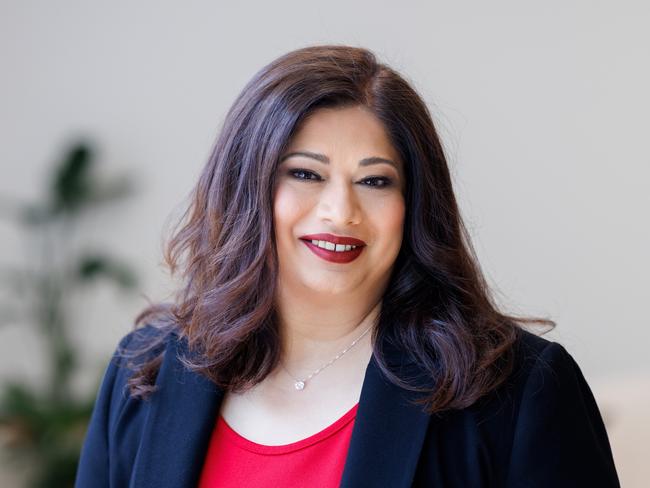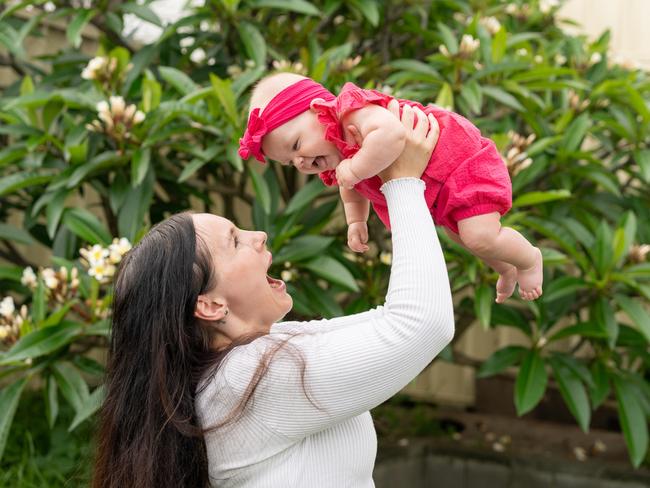Best and worst NSW IVF clinics revealed for 2024
These are the top and lowest performing IVF clinics across the state. See the full list and what it means for your chances of having a baby.
NSW
Don't miss out on the headlines from NSW. Followed categories will be added to My News.
Exclusive: Women seeking fertility treatment are four times more likely to have a baby if they seek help from the highest performing IVF clinic in NSW, compared with the lowest performing one.
Genea Orange was the top clinic in the state for women under 35, with 68.1 per cent of embryo transfers resulting in a baby, according to the newest figures from the Federal Government’s Your IVF Success website.
Monash IVF Albury had the lowest rate of success, with 35.4 per cent.
Genea Wollongong was the top performer in the state for those aged 35 to 42, with 44 per cent of embryo transfers resulting in a baby, compared with the lowest performer in that age category, City Fertility – Sydney which achieved just 11.4 per cent.
The national average for those under 35 was 48.1 per cent and for those 35 to 42 it was 25.7 per cent.
Independent experts from UNSW looked at five performance measures to determine the figures on the Your IVF Success website.
From those results we produced two league tables of IVF success rates.
The first table shows the number of live births that resulted from the eggs (fresh or frozen) collected from women in 2021 that were fertilised and implanted as embryos in 2021 and 2022.
A second table shows the number of pregnancies per treatment, using data from 2023.
One in 18 babies in Australia are conceived through IVF and in 2022 there were 100,038 IVF cycles, with 17,963 babies born using the technology.
Dr Frank Quinn, Medical Director, IVFAustralia, said their metro-based clinics have consistently high IVF success rates that sit well above the national average for all age groups.
“It can be difficult to compare individual clinic success rates as the results can be easily skewed if a clinic treats more complex patients or has a higher number of older patients,” Dr Quinn said.
Chief Scientific Officer at Monash IVF Prof Deirdre Zander-Fox said Your IVF Success was a valuable tool for people seeking IVF.
She said year on year Monash IVF’s results improved.
“We are absolutely committed to getting the best outcomes for our patients by making sure everything we do is perfect,” Prof Zander-Fox said.
“We always look for new technology to help the most complex cases.”

Genea Fertility Specialist Dr Chandrika Parmar said key advancements such as state-of-the-art incubators and new technology ensured their clinics achieved excellent results.
“As we review opportunities to integrate AI, our focus remains on enhancing both success rates and the overall patient experience,” Dr Parmar said.
The clinics also use time-lapse technology for all embryos, which couples can watch via an app.
One of their clients Casey Foxton, 30, and her partner, Matthew Hinkley, 42, knew it wouldn’t be easy to conceive because of Ms Foxton’s low egg count and Mr Hinkley’s vasectomy, which he underwent after having two children in a previous relationship.

The couple said they lived through “constant pressure” as they underwent three rounds of IVF with Genea Fertility Wollongong in NSW over two years. They chose the clinic because of its reputation and because their clinician Dr Lionel Reyftmann had helped a friend.
In total they spent $35,000 on IVF treatment and had to use some of Mr Hinkley’s superannuation to fund it, which included his urologist costs.
Ms Foxton said it was a shock when the first IVF round failed, but praised Dr Reyftmann and the nurses for their confidence and positivity throughout each round.
She said they “got lucky” last year when she fell pregnant, but she was in denial that it had worked, saying, “it’s such a process to get to that point, you’re constantly sitting there waiting for something to go wrong.”
In July this year the couple welcomed their daughter Sophie.
“There are times I pinch myself. I can’t believe she’s real,” Ms Foxton said.
A spokesman for Monash IVF said compared to big, city clinics, regional ones treat far fewer people and therefore the data can be “hard to read”.
“Our scientific governance policies are very rigid and highly governed,” the spokesman said. “We apply the same principles in Mildura as we do in Melbourne and Sydney.”
A comment from City Fertility – Sydney was being sought.




